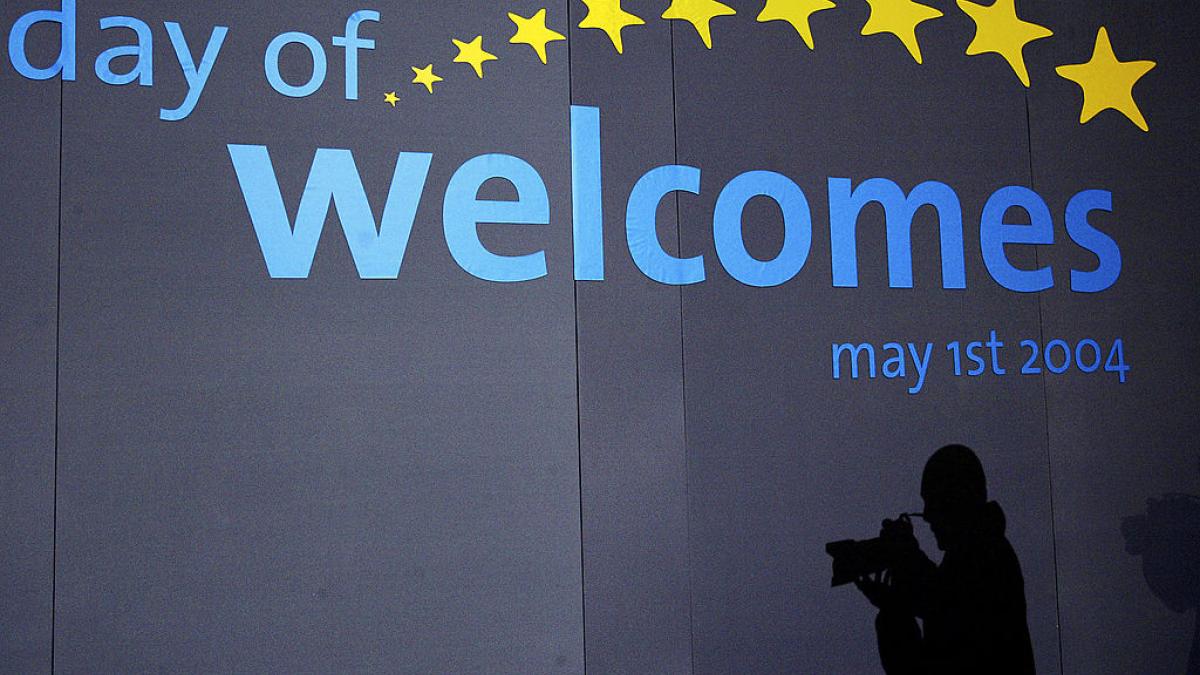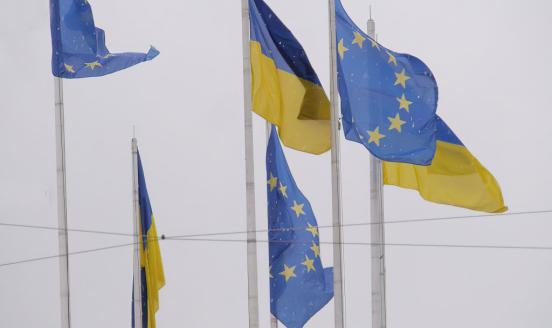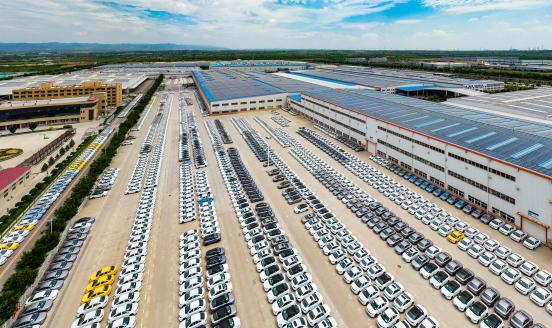The push-pull between geopolitics and domestic resistance: lessons from the 2004 enlargement of the EU
Geopolitics is now a chief concern of political leaders in both the EU and candidate countries, giving them strong reasons to integrate more closely

When the Soviet Union collapsed in 1991, Jacques Delors seized that geopolitical moment to persuade European leaders to stop blocking access to EU markets for Hungary, Poland and the other post-communist economies. He argued that the opportunity to reunite Western and Eastern Europe was more important than preventing disruption to agriculture, textile and steel industries.
Throughout the history of European integration, enlargement policy has been caught in this push-pull between geopolitical reasons to admit new members and domestic reasons to keep them out. There are always opponents to change, fearing economic competition or loss of farming subsidies, or losing out in the new power balance of a larger Union.
The ‘Big Bang’ enlargement of 2004 was preceded by a fierce debate about how the club of then 15 members would cope with absorbing another 12. Predictions of institutional gridlock and budgetary disaster were proved wrong as the European Union adapted its procedures and policies, using long transition periods to cushion the immediate impact on the Common Agricultural Policy and on labour markets. Treaty changes followed the 2004 accessions, rather than deepening before widening. The EU could use the same tactics to manage the impact of future enlargements.
Following Croatia’s accession in 2013, EU countries felt little geopolitical urgency to bring in the rest of the Balkans, where security threats had ebbed but there was little economic development. The geopolitical stakes rose again when Russia invaded Ukraine in 2022. Ukraine and Moldova rapidly became candidates, bringing new momentum also to the Balkan countries’ accession processes. The question is similar to the one 20 years ago: is the EU better off trying to keep problems outside its borders or should it use the accession process as a framework to address them?
To improve future enlargement policy, the EU needs to remember three key lessons from the 2004 experience.
1. Democratic transition is not a one-way street and good governance requires clear standards. Following the Cold War, democratisation and marketisation were widely assumed to be one-directional processes that were mutually reinforcing. The EU’s agenda for post-communist Europe was never a full plan for democracy and development. The EU focused its accession conditionality and negotiations on ensuring that potential members could participate in a common market, its budget and policies, and its community of law.
Because its body of law is mainly about market regulation and economic governance, the EU has no answers to fundamental questions of national identity or how to unseat rent-seeking elites. In other words, its influence on democracy and governance is much more limited than on regulation of markets. EU countries have never wanted to give the EU major powers to sanction undemocratic practices or corruption at national level – and have moved very slowly in addressing misuse of EU funds in Hungary. It is time now to develop an acquis démocratique that spells out clearer standards for democratic governance and the rule-of-law essentials.
2. Transformative power depends on consistency and credibility. The challenges of meeting EU membership requirements are all the greater when the EU’s anti-corruption and rule-of-law agenda runs against the interests of political elites who have captured parts of the state. The EU empowered and guided liberalising reformers in Central Europe but was less successful in the Balkans as growing Russian influence in the region supported authoritarian tendencies in some of the countries. The EU now needs to regain credibility by holding firm on conditionality of independence of the judiciary, human rights, media freedom and democratic checks and balances on executive power. But its credibility depends on rewarding candidates’ progress towards meeting its conditions, and preventing bilateral disputes raised by its member countries from blocking them.
3. Transformation of the economy and the state depends on a self-sustaining dynamic between domestic reforms, the accession process and inward investment. Systemic transformation was achieved in Central Europe thanks to the virtuous circle between reforms, EU accession prospects and inflows of foreign direct investment. This dynamic never developed in the Balkans because armed conflict and post-war status issues delayed economic transition until after the 1990s surge in the supply of global capital. Reforms then happened too slowly for access to EU markets to bring investment and jobs.
This lesson is important for post-war reconstruction efforts in Ukraine, which need to focus on stimulating this dynamic. Multilateral donors, including the EU, will need to encourage reforms that bring in private sector investment and prepare the country for eventual membership.
Geopolitics is now a chief concern of political leaders in both the EU and the candidate countries, giving them strong reasons to integrate more closely. This motivation should enhance use of conditionality rather than weaken the push for reforms to improve governance and bring in more investment. In future, the accession negotiations should be accompanied by progressive integration, so that the candidate country starts to take part in EU policies and to enforce its rules – for example in environmental and energy policies – even before accession. That will bring the benefits of European integration faster to citizens and businesses and reduce domestic reasons to delay the adjustments that both the EU and candidate countries must make for successful enlargement.



